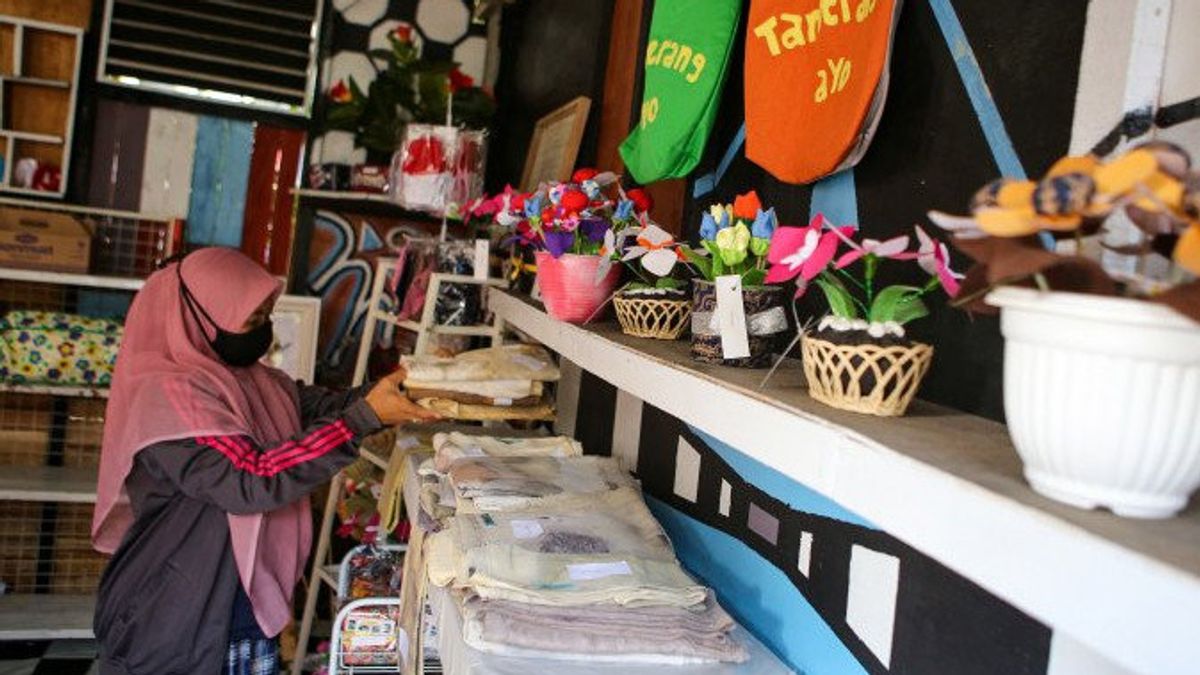JAKARTA - Indonesia's Climate Policy Initiative (CPI) in its study on Sustainability Report Compliance and Sustainable Finance Commitments in the Banking Sector shows that national and foreign banks are more interested in financing micro, small and medium enterprises (MSMEs) than the green sector.
Associate Director of the Climate Policy Initiative, Tiza Mafira revealed that, in terms of commitment to sustainable finance (sustainable finance), CPI Indonesia's findings show that, although it continues to grow, the portion allocated by the banking sector for funding for the 11 green categories is only 27 percent, while as much as 73 percent given for MSME social activities.
"A higher contribution is needed, both from the banking sector and from other financial service institutions to encourage green funding in Indonesia," Tiza said in a statement to the media, Saturday, July 2.
Meanwhile, Senior Analyst of the Climate Policy Initiative, Luthfyana Larasati revealed that the capital market industry is one sector that has high potential to participate in greening the ecosystem in the financial sector.
According to statistical data from OJK and IDX, Indonesia's capital market capitalization from 2015 to April 2022 has reached Rp9.4 quadrillion, equivalent to 55 percent of GDP in 2021 or almost 3.5 times the state budget in 2022.
Meanwhile, the Association of Indonesian Securities Companies (APEI) as a component of the financial sector believes that the submission of a Sustainability Report is an important effort in the capital market sector in supporting sustainable finance and a commitment to optimizing environmental and social responsibility funds.
Rudy Utomo, as the General Chair of APEI's Committee, said that another effort that can be initiated by the capital market industry is to develop capital market products with the theme of green insight.
"The principle of sustainable finance has been well received by market players, as evidenced by the increasing portion of the green portfolio through the issuance of a new environmentally friendly index other than SRI-KEHATI, namely the ESG Leaders Index in 2020, and the increasing issuance of sustainable investment products such as green bonds and sustainability bonds," he said. .
Moreover, the issuance of the Indonesian Green Taxonomy 1.0 by OJK in early 2022, provides a reference in strengthening and developing green and sustainable instruments in the future. The green taxonomy can also assist the process of periodic monitoring of green financing and investment, so that in the future it can form green reporting and disclosure.
"APEI continues to support the capital market industry to improve best-practice on Sustainability Reporting, as well as develop sustainable financial products and improve ESG practices. ), and disclosure of information (disclosure) about green finance and sustainable finance," he concluded.
The English, Chinese, Japanese, Arabic, and French versions are automatically generated by the AI. So there may still be inaccuracies in translating, please always see Indonesian as our main language. (system supported by DigitalSiber.id)













